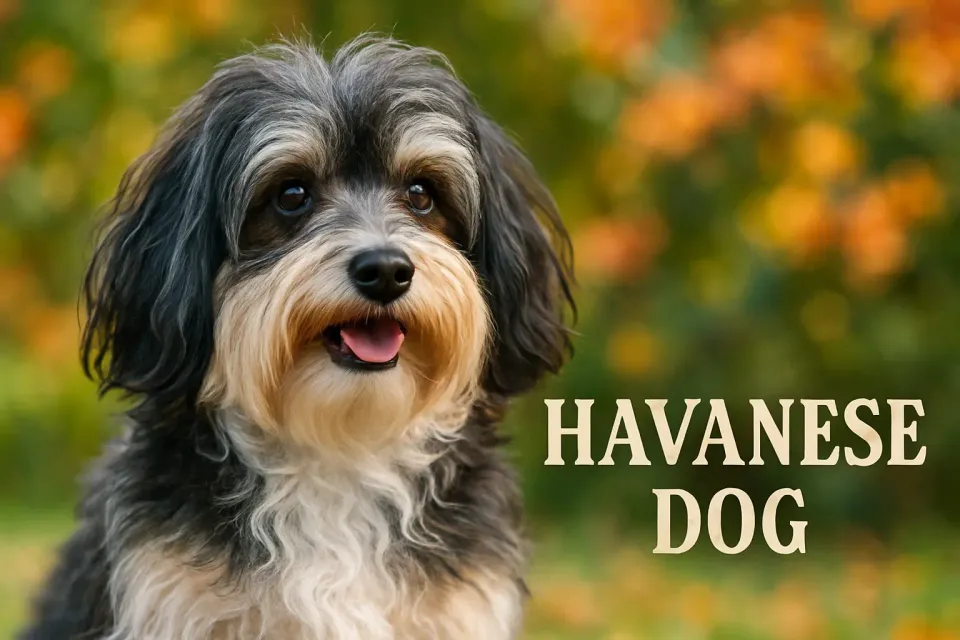Boxer Dogs: Your Ultimate Guide to This Energetic Breed 🐶

Boxer Dogs are a beloved breed, renowned for their playful energy, muscular build, and unwavering loyalty. Originating in Germany in the late 19th century, Boxer Dogs have become popular worldwide, including in India, where their protective nature and affectionate demeanor make them cherished family pets. Known for their expressive faces and boundless enthusiasm, Boxer Dogs are ideal for active households and those seeking a devoted companion. This comprehensive guide explores everything you need to know about Boxer Dogs, from their history and characteristics to care, training, and adoption tips. Whether you’re considering adding a Boxer Dog to your home or simply curious about this dynamic breed, this guide is your go-to resource. 🌟
For a broader perspective on popular breeds, check out Dog Breeds in India.
History of Boxer Dogs 📜
Boxer Dogs trace their origins to Germany in the 1890s, developed from the now-extinct Bullenbeisser, a hunting dog, and crosses with Mastiffs and Bulldogs. The breed was refined to create a versatile working dog, excelling in roles like guarding, hunting, and military service. The name “Boxer” likely comes from their playful tendency to “box” with their front paws, a charming trait that persists today.
By the early 20th century, Boxer Dogs gained popularity in Europe and the United States, valued for their strength and gentle temperament. In India, Boxer Dogs have become a favorite due to their adaptability to various climates and their suitability as family pets and guard dogs. 🐕
Characteristics of Boxer Dogs 🐾
Boxer Dogs are instantly recognizable for their athletic build and expressive faces. Here’s a closer look at what defines this breed:
Physical Appearance
- Size: Medium to large, standing 21–25 inches tall at the shoulder.
- Weight: Males weigh 65–80 pounds, females 50–65 pounds.
- Coat: Short, smooth, and shiny, typically in fawn (light tan to reddish-brown) or brindle (striped pattern) with white markings.
- Lifespan: 10–12 years with proper care.
The Boxer Dog’s wrinkled forehead, soulful eyes, and docked tail (where legal) add to its distinctive charm.
Temperament
Boxer Dogs are known for their energetic, loyal, and affectionate personality. Key traits include:
- Playful: Love engaging in games and roughhousing with their owners.
- Protective: Naturally alert and vigilant, making them excellent guard dogs.
- Affectionate: Form strong bonds with family members, including children.
- Energetic: Thrive on activity and require regular exercise.
These qualities make Boxer Dogs a joyful and reliable addition to active households.
Why Choose a Boxer Dog? 🌟
Boxer Dogs are a fantastic choice for those seeking a lively and loyal companion. Here’s why Boxer Dogs stand out:
- Family-Friendly: Gentle and patient with kids, ideal for families.
- Protective Instincts: Natural guardians, ensuring home safety.
- Low Grooming Needs: Short coats require minimal maintenance.
- Versatile: Thrive in roles as family pets, guard dogs, or therapy dogs.
Whether you’re an active individual or a family with children, Boxer Dogs bring energy and devotion to any home.
Caring for Boxer Dogs 🧼
Owning a Boxer Dog requires commitment to their physical and emotional well-being. Here’s a detailed guide to their care:
Diet and Nutrition 🍽️
A balanced diet is essential for the Boxer Dog’s energy and overall health.
- Food Type: High-quality dry kibble or wet food formulated for medium-to-large breeds. Choose protein-rich options with ingredients like chicken, beef, or fish.
- Portion Size: 2–3 cups of food daily, split into two meals, adjusted for age, weight, and activity level.
- Treats: Use healthy treats like apples or carrots for training, avoiding high-calorie snacks.
- Hydration: Ensure constant access to fresh water, especially after exercise.
Consult a vet to tailor a diet plan, as Boxer Dogs are prone to weight gain if overfed.
Grooming 🛁
The Boxer Dog’s short coat is low-maintenance but benefits from regular care.
- Brushing: Brush weekly with a rubber curry brush to remove loose hair and promote shine.
- Bathing: Bathe every 6–8 weeks with a dog-specific shampoo to avoid skin irritation.
- Nail Trimming: Trim nails every 3–4 weeks to prevent discomfort.
- Ear Cleaning: Clean ears weekly to prevent infections, as Boxer Dogs can be prone to ear issues.
- Dental Care: Brush teeth 2–3 times a week to maintain oral health.
Regular grooming keeps your Boxer Dog looking and feeling great.
Exercise Needs 🏃♂️
Boxer Dogs are highly energetic and require 1.5–2 hours of daily exercise to stay healthy and prevent boredom.
- Activities: Daily walks, runs, fetch, and agility training are ideal.
- Mental Stimulation: Puzzle toys, obedience training, and interactive games engage their sharp minds.
- Socialization: Regular visits to dog parks or playdates with other dogs enhance their sociability.
A well-exercised Boxer Dog is less likely to develop destructive behaviors like chewing or excessive barking.
Training a Boxer Dog 📚
Boxer Dogs are intelligent and eager to please, but their exuberant energy requires consistent training.
Basic Commands
Teach commands like sit, stay, come, and down using positive reinforcement.
- Treats and Praise: Reward with treats and affection to motivate Boxer Dogs.
- Short Sessions: Train for 10–15 minutes daily to maintain focus.
Socialization
Early socialization ensures Boxer Dogs become well-adjusted adults.
- Puppy Classes: Enroll in group classes to improve manners and social skills.
- Exposure: Introduce them to various people, pets, and environments like parks or markets.
Managing Their Energy
Boxer Dogs can be boisterous, so channel their energy effectively.
- Leash Training: Teach loose-leash walking to manage their enthusiasm.
- Impulse Control: Practice commands like “wait” to curb jumping or rushing.
With patience, Boxer Dogs can become well-mannered companions.
Health Concerns for Boxer Dogs 🩺
Boxer Dogs are generally healthy but prone to certain conditions. Regular vet checkups are essential.
- Boxer Cardiomyopathy: A heart condition that can lead to arrhythmias. Regular heart screenings are recommended.
- Hip Dysplasia: A genetic condition affecting hip joints, causing mobility issues.
- Cancer: Boxer Dogs have a higher risk of cancers like mast cell tumors. Early detection is key.
- Bloat (Gastric Torsion): A life-threatening condition common in deep-chested breeds. Feed smaller meals and avoid exercise after eating.
- Allergies: Skin allergies can cause itching; monitor for symptoms and consult a vet.
Preventive Care
- Vaccinations: Follow a vet-recommended schedule for core vaccines like rabies and distemper.
- Flea and Tick Control: Use monthly preventives to protect against parasites.
- Spaying/Neutering: Reduces health risks and curbs behavioral issues.
Proactive care ensures your Boxer Dog enjoys a long, healthy life.
Adopting a Boxer Dog in India 🏡
Adopting a Boxer Dog in India is a rewarding experience but requires careful planning.
Where to Adopt
- Reputable Breeders: Choose breeders registered with the Kennel Club of India (KCI) who provide health clearances for puppies.
- Rescue Organizations: Groups like CUPA (Bangalore) or Friendicoes (Delhi) may have Boxer Dogs for adoption.
- Pet Shops: Verify the source to avoid puppy mills, which prioritize profit over animal welfare.
Cost of a Boxer Dog
- Puppy Price: INR 20,000–40,000 from reputable breeders, depending on pedigree.
- Monthly Expenses: INR 5,000–8,000 for food, grooming, and vet care.
Questions to Ask Breeders
- Are the parents tested for hip dysplasia and heart conditions?
- Can I see the puppy’s living conditions and meet the parents?
- What vaccinations and deworming have been done?
Adopting a Boxer Dog from a trusted source ensures a healthy, happy pet.
Boxer Dogs as Family Pets 👨👩👧👦
Boxer Dogs are excellent family pets due to their protective and affectionate nature.
- With Children: Gentle and playful, they’re great with kids. Supervise young children to prevent accidental rough play.
- With Other Pets: Generally sociable but may need gradual introductions with other dogs or cats.
- In Apartments: Adaptable to smaller spaces if given ample exercise and mental stimulation.
A Boxer Dog brings joy and security to any household with proper care.
Fun Facts About Boxer Dogs 🎉
- Military Heroes: Boxer Dogs served as messenger and guard dogs in World Wars I and II.
- Expressive Faces: Their wrinkled foreheads give them a uniquely expressive look.
- Athletic Stars: Boxer Dogs excel in agility and obedience competitions.
- TV Favorites: They’ve appeared in shows like The Brady Bunch and Little House on the Prairie.
These facts highlight why Boxer Dogs are such a cherished breed.
FAQs About Boxer Dogs ❓
Are Boxer Dogs good for first-time owners?
Yes, but their high energy requires committed training and exercise.
How much exercise do Boxer Dogs need?
They need 1.5–2 hours of daily exercise, including walks, play, and training.
Do Boxer Dogs shed a lot?
They shed moderately, with weekly brushing keeping it under control.
Are Boxer Dogs good with kids?
Yes, their playful and gentle nature makes them great family pets.
How much does a Boxer Dog cost in India?
Puppies cost INR 20,000–40,000, with monthly expenses of INR 5,000–8,000.
What health issues do Boxer Dogs face?
Common concerns include heart conditions, cancer, and bloat. Regular vet care is essential.
Conclusion: Why Boxer Dogs Are the Perfect Companion ✨
Boxer Dogs are a remarkable breed, combining strength, loyalty, and a playful spirit that wins over pet lovers worldwide. From their protective instincts and boundless energy to their adaptability in India’s diverse climates, Boxer Dogs are truly special. By providing proper care, training, and love, you can ensure your Boxer Dog thrives as a loyal companion. Whether you’re adopting a puppy or learning more about this breed, Boxer Dogs promise a lifetime of joy and unforgettable moments. Start your journey with a Boxer Dog today and welcome a furry friend who’ll light up your life! 🐶🌟





